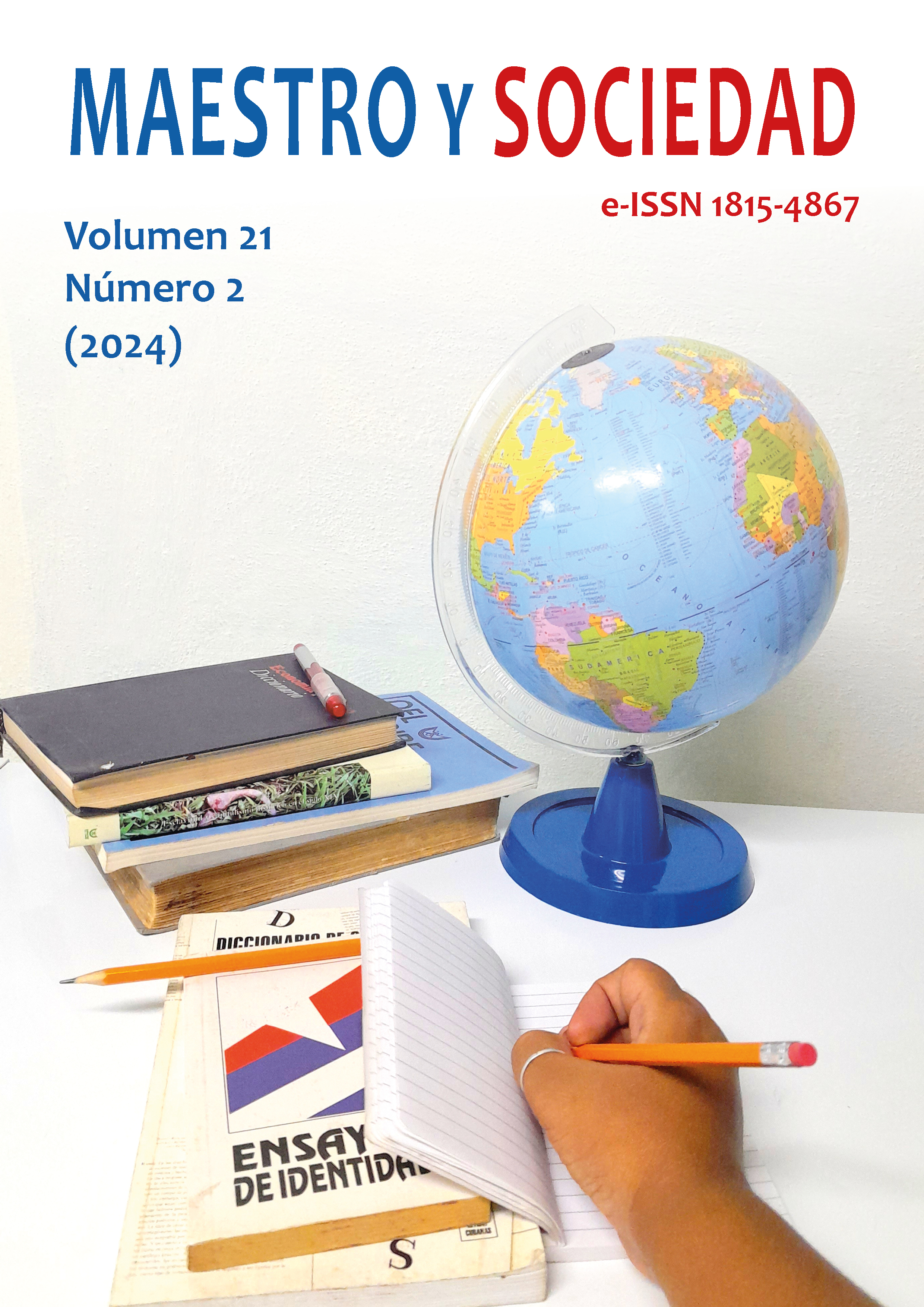Strategies for cognitive skills in learning with autism spectrum disorder. José María Velasco Ibarra Educational Unit
Keywords:
Cognitive strategies, Autism Spectrum Disorder (ASD), teaching learning cognitive skills memory disorderAbstract
The present research entitled Strategies and cognitive skills for the improvement of learning of students with autism spectrum disorder at the high school level of the educational unit José María Velasco Ibarra of Buena Fe Canton, The main objective of the research is to analyze strategies of cognitive skills for the improvement of learning of students with autism spectrum disorder at the high school level of the José María Velasco Ibarra Educational Unit of the Buena Fe Canton, during the school year 2020-2021, the research process has a critical prepositive approach that allowed gathering information and sustaining it through a statistical analysis, It is critical since a descriptive analysis of the phenomena to be investigated and prepositive, Given that its purpose is to analyze the strategies and cognitive skills to improve the learning of students, the data collection technique was the survey and for this purpose a questionnaire was applied to the teachers of the institution and a proposal was made with a training plan containing activities that allow the development in students with ASD to improve their concentration, memory and attention. The results of the validation allowed to know the importance of the application of this type of strategies within the educational unit, the requirement that teachers have in this important topic and the favorable application that will result in the students.
References
Almenara, J. C. (2015). Innovación, ciencia y tecnología. SINERGIA.
Alonso, A. (2015). Memoria a corto plazo. PSYCIENCIA.
Arias, F. G. (2016). Proyecto de Investigación: Introducción a la metodología. Episteme.
Barbaján, C. &. (2012). Apoyo domiciliario y alimentación familiar: El asistente como eje central en la gestión y mantenimiento del hogar del dependiente. Vigo: Ideas propias Editorial.
Barradas, M. (2014). Seguimiento de Egresados: Una excelente estrategia para garantizar una educación de calidad. Ideaspropias.
Billini, D. M. (2015). Métodos y Técnicas Didácticas. UNIBE.
Caballero, J. G. (2014). ¿Perjudica o mejora el desarrollo del lenguaje en niños con autismo el uso de Tablets? Autismo Diario.
Cepeda, J. S. (2013). Desarrollo y Competitividad de los Sectores Económicos en México. Centro de Investigaciones Sociales.
Comín, D. (2013). El déficit en la Función Ejecutiva y su impacto en el Autismo. Autismo Diario.
Cuesta, M. (2018). Introducción al muestreo. Universidad de Oviedo.
Dávila Newman, G. (2017). El razonamiento inductivo y deductivo dentro del proceso investigativo en ciencias experimentales y sociales. Laurus, 180 - 205.
Ecuador, C. d. (s.f.). La memoria: definición, funciones y tipos de memorias. Quito: Editora Nacional. Bacigalupi.
Fernández, R. (2010). La mejora de la productividad en la pequeña y mediana empresa. Alicante.
Fernández, R. (2011). La dimensión económica del desarrollo sostenible. Club Universitario.
Gan, F. &. (2007). Manual de Recursos Humanos: programas para la gestión y el desarrollo del Factor Humano en las organizaciones actuales. Barcelona: Editorial UOC. .García-Allen, J. (2018). Psicología y Mente.
Gardey, J. P. (2013). Definición de cognitivo. Adventure Mex.
Guerrero, R. (2014). Técnicas elementales de servicio. Paraninfo.
Haden, J. (2008). El diccionario completo de términos de bienes raíces explicados en forma simple: lo que los inversores inteligentes necesitan saber. Atlantic Publishing Grupo.
Hartman. (1993). A broad BACEIS for improving thinking. Instructional Science, 401-425.
Joachimsthaler, E. (2008). Ver lo evidente: Cómo definir y ejecutar la futura estrategia de crecimiento en su empresa. Ediciones Deusto.
Kanner. (1943). Autistic disturbance of afective contact. Nerv Child, 217-250.
Longenecker, J. P. (2012). Administración de Pequeñas Empresas: Lanzamiento y Crecimiento de iniciativas de emprendimiento. Cengage Learning.
Medline Plus. (4 de Noviembre de 2020). Enfermedad de Alzheimer. https://medlineplus.gov/spanish/alzheimersdisease.html
Morales, D. (2015). Métodos y Técnicas Didácticas. UNIBE.
Orozco. (2018). La Investigación en comunicación desde la perspectiva Cualitativa. Universidad Nacional de la Plata, 137.
Pérez Rivero, P. (2014). Perfiles cognitivos en el Trastorno. CES Psicología.
Tamayo, M. (2016). Proceso de Investigación Científica. Aristotelis.
Watson, J. (1924). Behaviorism. Norton.
Weinstein. (1986). The teaching of learning strategies. Wittrock,
Published
How to Cite
Issue
Section
License
Copyright (c) 2024 Gabriela Liseth Peñarrieta Anchundia, Rully Mariela Arroyo Peñafiel, Omar Alexander Ruiz Averos, Freddy Remigio Sánchez Morales

This work is licensed under a Creative Commons Attribution-NonCommercial-NoDerivatives 4.0 International License.
This journal provides immediate open access to its content, based on the principle that offering the public free access to research helps a greater global exchange of knowledge. Each author is responsible for the content of each of their articles.



























 Universidad de Oriente
Universidad de Oriente 